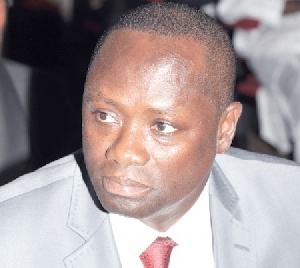After almost five years of oil production, energy experts and civil society organisations are questioning government’s spending of petroleum revenues that have accrued to the sector.
They contend that there is evidence of inefficiency in the use of petroleum revenues, where limited resources have been thinly distributed over too many projects, leading to cost overruns, “a situation which undermines value for money in projects funded from petroleum revenues.”
There is also a concern that there is grim corruption in the allocation of funds for the road sector and in the execution of the projects. Apart from shady deals that characterise procurement processes, price quotations are mostly inflated.
The 2014 report of the Public Interest and Accountability Committee (PIAC) revealed for instance that almost 60 percent (GH¢128.22 million) of the total allocation of oil revenues to the ‘Roads and Other Infrastructure’ priority area was spent on constructing, rehabilitating, upgrading and resurfacing a total of 64 roads and related ancillary works.
PIAC is the body established and entrusted with the responsibility of monitoring the management of Ghana’s petroleum resources.
Out of the 64 roads, 42 of them were new projects while 22 of them were road networks that had benefited from oil money support between 2011 and 2013.
The experts have questioned why roads and other projects which benefitted from previous funding are still being funded from oil revenues.
This is in spite of the fact that non-oil funding for the same roads in question was provided for in the 2014 budget.
In fact, the share of the Annual Budget Funding Amount (a portion of the oil revenue used to support the budget) allocated to road projects represented less than 17 percent of the Roads and Highways sector budget in 2014.
“As observed in the 2013 PIAC Annual Report, the ABFA continues to be used largely as partial funding for the ‘beneficiary road’ projects,” the 2014 PIAC report stated.
It is interesting to note that the 2013 PIAC report pointed out that there was an aggregated amount of GH¢13.27 million, reported to have been paid in two installments and spent in 2013 but could not be linked directly to any project.
To address what it describes as the inefficiency in the utilization of oil revenues observed between 2011 and 2014, energy Think-Tank, Africa Centre for Energy Policy (ACEP) has asked government to cease spending of the oil revenues on office of government machinery, the National Disaster Management Organisation (NADMO) and non-social sectors such as the Venture Capital Fund and Exim Guaranty Funds which “must be private sector driven.”
“Government must commit the resources to social sectors that are pro-poor and can make quick development impact on the country,” Head of Policy at ACEP, Dr Ismael Ackah submits.
The energy Think-Tank refers to section 21 (5) of the Petroleum Revenue Management Act (PRMA) 2011 (ACT 815) and reminds government that the Act requires that not more than four areas are targeted for use of the ABFA.
The provision implies then that government could limit its priorities to one or two areas only, instead of the existing three.
ACEP alleges that government has exploited the weaknesses of Act 815 to increase its spending of petroleum revenues meant for savings in the Ghana Stabilization Fund (GSF).
The Centre proposes that “given the financing gap between the pro-poor sectors such as agriculture and health, it will be appropriate to reduce the priorities to two sectors to ensure that they are fully funded to deliver quality services and development to Ghanaians.”
Crude oil exports from Ghana increased from $2.8billion in 2011 to $3.9billion in 2013 but dropped to $3.7 billion in 2014.
Correspondingly, total government revenue from oil increased from $444.1 million (16 percent of total oil exports receipts) to $978.8 million representing 26.3 per cent of total oil exports receipts).
Ghana after two years of exporting oil became a net importer of the commodity. In 2013 however, the country turned a net exporter of oil.
The Natural Resource Governance Institute (NRGI), an independent, non-profit organization which provides policy advice and advocacy on extractive resources is concerned that Ghana has seen its petroleum revenue savings overshadowed by much larger increases in borrowing since 2011.
“Even though the PRMA has made some savings for future generations, a broader look reveals that future generations have overwhelmingly been saddled with liabilities,” it notes.
Over the past five years, long-term savings in the Heritage Fund have been modest, reaching about $250 million, while debt accumulation has been very large, Economic analyst with the NRGI, Mr Mark Evans laments.
According to the Institute, Ghana’s external debt increased rapidly from $6billion in 2011 to more than $14 billion in 2014, a debt which is increasingly financing a budget focused on recurrent expenditure.
The institute noted that oil funded public investments have been overshadowed by “a much bigger shift in government budget in favour of salaries, wages and goods and services.”
It further cautions that savings and allocation of petroleum revenues is of little practical benefit unless the rest of the budget is supporting the same objectives.
A former Deputy Finance Minister, Prof George Gyan-Baffuor stresses the importance of investing Ghana’s oil revenues into industry so the country can continue to reap benefits even “when the oil is no more.”
Using examples of some oil-rich countries in the Middle East who have been investing in a flourishing aviation sector, Prof Gyan-Baffuor calls on managers of the economy to focus on one sector.
Business News of Thursday, 12 November 2015
Source: The Finder













